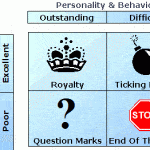Search engine and pay-per-click optimization for health and wellness begins with understanding your sales funnel and your prospect’s search intent.
Here’s how we think about the sales funnel for our SEO and PPC clients, based on our proprietary marketing framework aligned with DiClemente & Prochaska’s Stages of Readiness for Lifestyle Change.
Contemplation
Prospects in this stage want to lose weight (or run faster, or eat better, or control their blood sugar better, etc.) — but they’re not sure how to go about it. They’re mostly focused on expanding their sense of all the possibilities. They browse lots of ideas — like calorie restriction, more exercise, fewer desserts, emotional eating workshops, online diet communities, and so on.
The focus during contemplation is more on getting a sense of different approaches to solving the problem, and less on picking a specific company to buy products, services on programs from. That step comes later.
Sample search queries during this stage:
- Can I lose weight and still eat bread
- How fast should I lose weight after having a baby
- How do people lose weight after menopause
- Do I have to exercise to lose weight
- I overeat when I’m stressed what should I do
These are all information searches that suggest someone’s trying to solve a problem — they want answers to these specific questions.
It’s therefore questions like these that should guide your website and Facebook content. For example:
- If your weight loss program is a great fit for pregnant women and fairly recent moms, zero in on that topic.
- If your focus is healthy lifestyles for inactive overweight people in their 40s and 50s, skip the pregnancy-related weight questions and focus on the menopause and exercise questions.
And so on.
Can questions like these be answered by blog posts like recipes, tips for drinking plenty of water, memes, or inspirational quotes? Of course not.
On the other hand, a self-assessment or buying guide can be extremely valuable to prospects in this stage. Tools like these affirm that their concern is justified, educate them about possible solutions, and give structure (including suggested next steps) to their ongoing search for answers.
For our clients, organic content is often very effective at engaging potential customers in this stage. Facebook ads (separate from business page posts) are often highly effective at getting this information to a targeted audience.
This content can also be strategically incorporated in Google pay-per-click Ads using site extensions, but the ROI will typically be much lower compared to PPC ads that target prospects who are farther along in their buying process.
Preparation
Now prospects begin to narrow down the list of possibilities to just those that feel like a realistic fit.
They may rule out gyms because they fear judgement, but rule in yoga because they perceive it as inclusive.
They may rule out a Canyon Ranch-style residential program because they can’t be away from work for a month.
They may rule in diet changes because they enjoy cooking and see recipe makeovers as a fun challenge — or because they figure they’ll just subscribe to Blue Apron’s meal delivery service and avoid grocery store and restaurant temptations entirely.
As they build this “short list,” they’re also narrowing down the list of potential businesses.
Let’s say our prospect decides they want a comprehensive weight loss program that includes nutrition and fitness guidance. They rule in Sparkpeople’s online diet community because it’s free and they can use it on the road during frequent business travel.
At the same time, they rule out their local health club’s weight loss program because it only offers in-person participation. And they rule out Planet Fitness because all it offers is workout equipment — no weight loss program.
Sample search queries during this stage:
- Best free weight loss program
- Weight loss for women in Elk Grove Village
- Weight loss programs near me
- Online weight loss programs
- Health clubs near me
- Exercise and diet program
Competitive comparisons, case studies, feature and benefit lists, program, plan and price descriptions, reviews and testimonials are just some of the content strategies that help prospects zero in on the right answer.
This content is especially valuable on landing pages and integrated into Google pay-per-click ads. It’s directly relevant to the buying decision and makes the case for choosing your business (it also helps keep people on the landing page longer, which improves Google’s assessment of the landing page experience).
Action
At this point, your prospect has narrowed their choice down to just one, maybe two, weight loss programs and makes a purchase.
In Preparation, they glanced at sales sheets, websites, brochures, reviews and testimonials. They’ve saved the two or three that matter. Now, they go back and pore over them, and probably pay your facility a visit too.
Sample searches here include:
- BusinessABC reviews
- Business ABC directions
- complaints business ABC
- Business ABC business hours
Broadly, they’re looking for reassurance that:
- They’re making the right decision and will feel at home — for example, stories and reviews from people they see as similarly placed
- Your business can be trusted with their wellbeing and happiness — for example, complimentary umbrellas when it rains or the right to switch trainers or health coaches if they don’t like the one they’re assigned
- If they made the wrong decision, there will be a way out — for example, a no-questions-asked refund policy anytime in the first 30 days or a free trial before committing
- If their circumstances change, they won’t be stuck — for example, penalty-free cancellation if they have to move, or develop a medical issue that prevents participation
Realize that reassurance in this stage of the sales funnel is a combination of words and action. For example, you’ll certainly include your satisfaction guarantee on your website and in your PPC ads — but your prospect will also judge your sincerity based on reviews and their in-person interactions with your business before they make a final decision.




